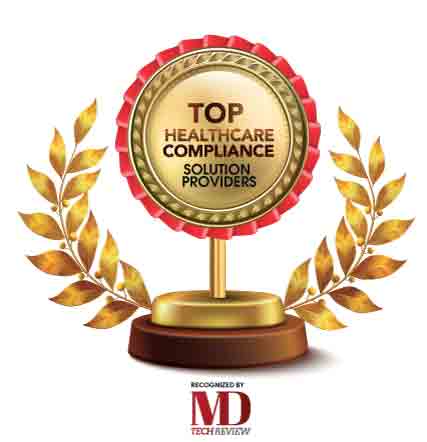The use of AI and the Internet of Medical Things has shown significant promise in consumer healthcare applications. These solutions leverage medical IoT devices to gather healthcare data and AI-based apps to process the information and make adjustments to a patient's current lifestyle
Fremont, CA: Over the last few years, Artificial Intelligence (AI) has emerged as one of the most disruptive technologies, with a breakthrough in every sector. Industries such as cybersecurity, manufacturing, education, and logistics have already implemented AI in their business models and are experiencing the benefits. The healthcare industry is no different, and without a doubt, the future of healthcare lies in the hands of AI.
AI can be applied on a massive scale in the healthcare industry. Some of its applications include diagnosis, treatment recommendations, patient engagement and adherence, and administrative functions. The use of deep learning in medical diagnosis has been proven to detect cancer. A study published by the National Cancer Institute shows that the accuracy of breast cancer detection with the use of AI is comparable to that of a radiologist. Both radiologists and the AI system have shown 95 percent confidence intervals. Given the ability of AI to train themselves, these figures are only likely to improve in the future.
The use of AI and the Internet of Medical Things has shown significant promise in consumer healthcare applications. These solutions leverage medical IoT devices to gather healthcare data and AI-based apps to process the information and make adjustments to a patient's current lifestyle. Considering the patient-centered approach of medical software developers has given rise to a trend of at-home health solutions. A voice-based virtual nurse program is already in the making and could become a buzzword real soon.
AI can be implemented in the healthcare sector to improve its various spheres. Here are some of the benefits of implementing AI in the field of medicine.
The evolving healthcare industry can benefit largely from the application of AI to medical diagnosis. AI-based software can tell whether a patient has a specific disease even before evident symptoms appear. Research by Google shows that a neural network can be trained to detect lung cancer signs earlier and faster than a trained radiologist.
Classifying Diseases
Deep learning technologies are capable of analyzing images and recognizing patterns. This opens up the potential for creating algorithms to help doctors diagnose specific diseases faster and more accurately. With the added ability to continually learn, these algorithms can improve the resulting quality of guessing the right decisions. Software-driven by AI can be programmed to accurately spot signs of a particular disease in medical images such as MRIs, x-rays, and CT scans. Similar solutions are already in use in the industry for cancer diagnosis by processing photos of skin lesions using AI-based software. These applications can help doctors diagnose patients more accurately and prescribe the most suitable medicine.
Strengthening the Decision-making Process
Diagnostics and treatment have always been a tricky business. Doctors need to factor in various aspects like symptoms the patient has, possible research mistakes, all the existing treatment methods, potential side effects, diseases with very similar signs, and many more before finalizing the treatment. With the aid of modern AI technology, doctors can overcome research obstacles and process vast amounts of health data. This will help them ensure a holistic understanding of a patient's health.




